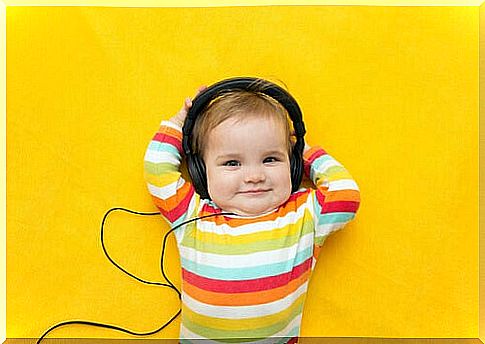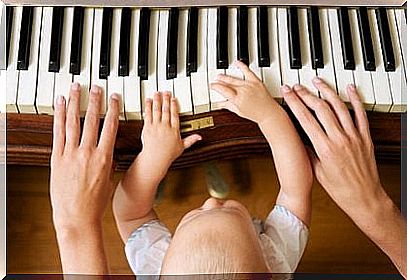Does Music Make Children Smarter?

Have you heard of the Mozart effect? Have you ever heard that music makes kids smarter ? Do you know where all these beliefs that link music and intelligence come from? Have you wondered if this claim has any real scientific basis?
There are many circumstances or activities that are likely to help boost children’s intelligence. Music is one of them, but it’s not the only one. Many studies have attempted to establish a link between learning a musical instrument and intelligence. So what ? Those who do not learn to play an instrument will “remain dumb”?
The Baby Mozart Project , the Little Einsteins cartoon series, and dozens of early stimulation programs and projects have made us believe that music makes children smarter. To achieve this goal, classical music has been identified as being especially beneficial by taking Mozart’s works as the benchmark to follow.

From there you have seen and seen parents and teachers, even pregnant mothers, putting classical music to their babies and taking their children to music lessons whenever the opportunity arises as if they were discovering the world. magic ingredient of intelligence. So the big question is: Did it all work? Does Music Really Make Kids Smarter?
Well no, or at least not enough to speak of a big profit. To say that playing classical music would make children smarter is constantly disputed by the literature in which one can read studies showing contrary results.
The study which in 1993 affirmed that the music makes it possible to improve the intelligence of the children could not be repeated and did not allow an extension of the experience. In fact, what was presented to us as a scientific study was not. Without a doubt, the idea was a spectacular marketing tool.
Music is very beneficial for the infant brain
With all of this, we’re not saying music is useless. Indeed, music has many benefits for the infant brain and also for that of adults. Much research has focused solely on demonstrating the effect of music on the brain.
It seems that music prepares our brains for certain types of reasoning. For example, a lot of research has proven that after listening to classical music, adults can complete certain tasks very quickly.
But, why is this happening? It would appear that the “classical musical pathways” in our brain are similar to the pathways we use for spatial reasoning. So when we listen to classical music, the special tracks would stay “on” and therefore ready to be taken.
This prior preparation facilitates the performance of special tasks. But the effect only lasts for a short time. Our enhanced special abilities wear off approximately an hour after we stop listening to music.

In contrast, learning to play an instrument can have more lasting effects on special reasoning. In many studies, children who took piano lessons for 6 months improved their ability to solve puzzles and other special tasks by about 30%. Thus, researchers believe that musical training allows the creation of new pathways in the brain.
Children who study music have also been found to improve their auditory processing, as can be seen in brain scans. This is important because auditory processing skills are fundamental for language development and for acquiring a second language or even for better concentration in a noisy space.
Other research has also found that music can be beneficial in cognitive functioning and can help reduce aggression, increase tranquility, reduce stress, and improve morale. However, that doesn’t mean that music makes kids smarter.
What really makes kids smart is …
There is no doubt that music benefits children and adults in different ways, but being ‘smart’ or getting ahead in school is probably not one of its greatest. profits. Yes, music helps, but not as much as it seems, or at least not as much as we have been led to believe.
Numerous studies show that children who attend music lessons or receive music education in school perform better in intellectual activities. It is likely that families and schools that invest in their children’s music education and other arts differ in many ways from families and schools that do not. The real cause of the observed differences is probably this.
Many researchers have attempted to replicate the results of modest gains in intelligence, intellectual ability, and academic performance. On the other hand, the results of their random music education trials on children did not at any time show that music made them smarter, and some studies even showed losses.

What we really need to do is play and talk with our children. Kiss them, hug them, cuddle them… Sing them songs, dance with them, read with them, explore with them… Stimulate their creativity, fuel their curiosity…
Does Music Make Kids Smarter? What does this change? If you really want your kids to be smarter, spend quality time with them – lots of time. This factor is undoubtedly more decisive than the music. Do not be mistaken.










